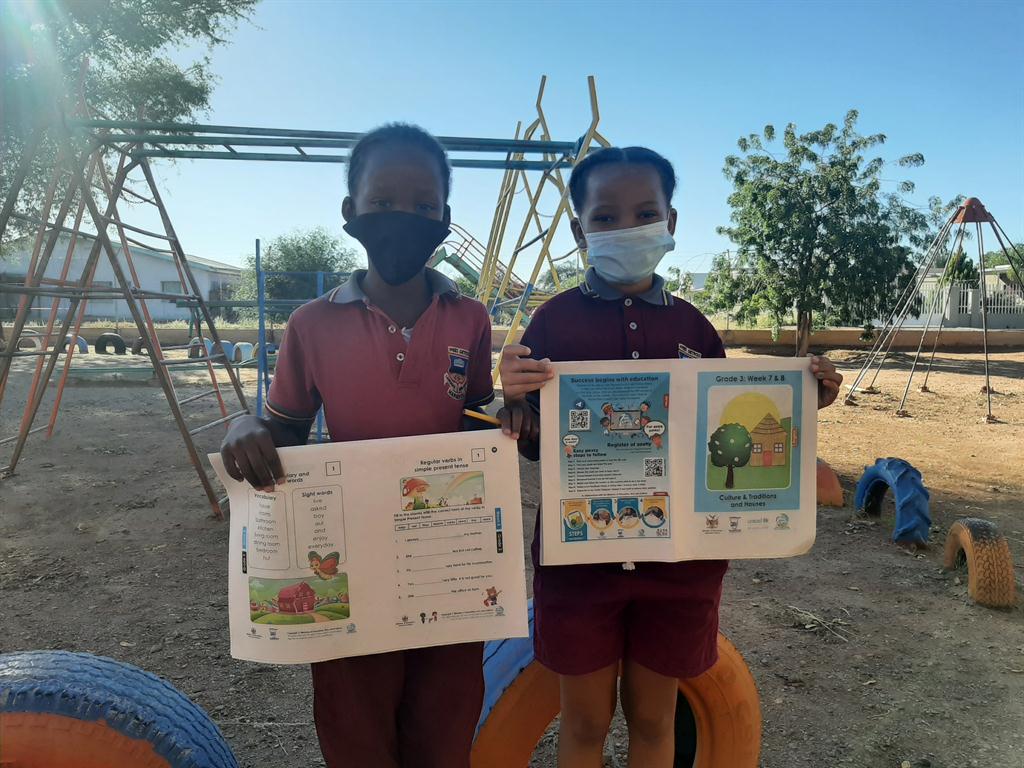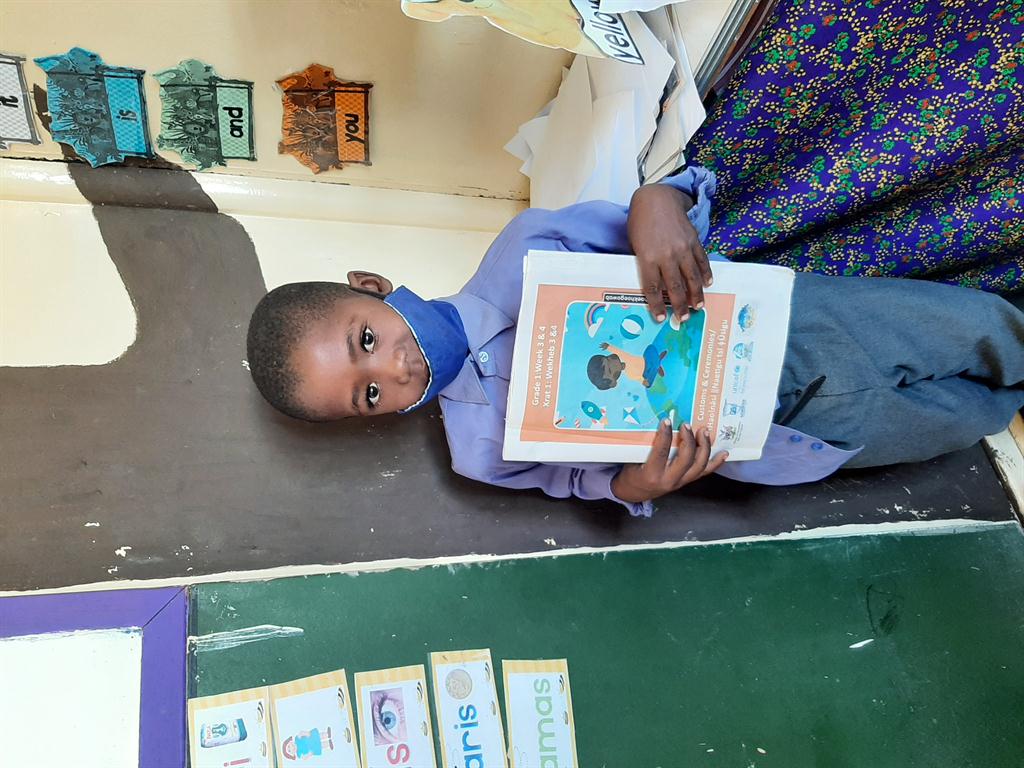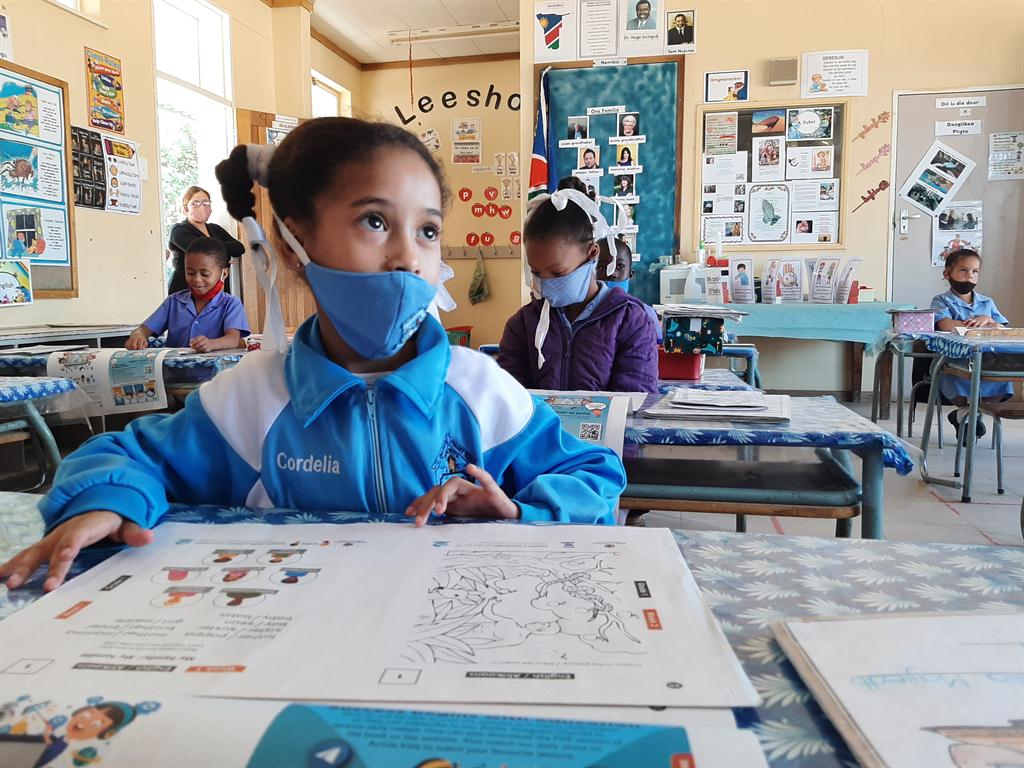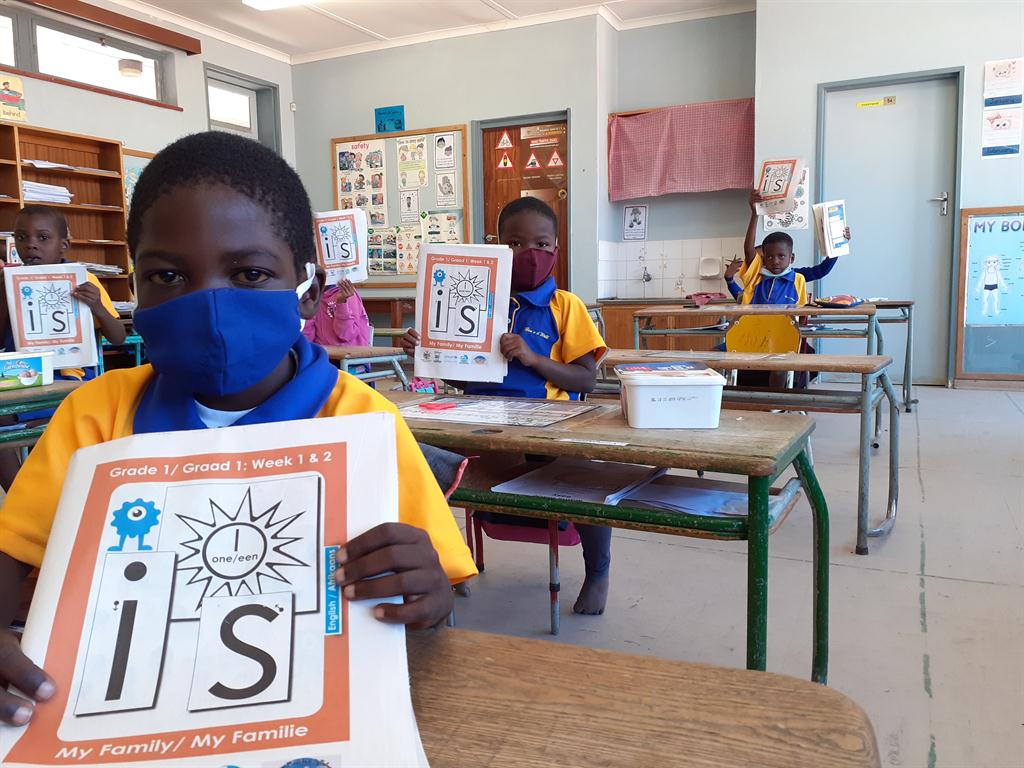Learning under lockdown
Equitable education at all costs
Yochanaan Coetzee
Thanks to Covid-19, the Namibian education sector, which is among the main barometers of any society’s equitability, has been pushed to an extent never seen before.
Months of schooling disrupted, 600 000 learners stuck at home, under-stimulated and aching for tutelage, socialisation and equal access to online and distance modes of education, which now represent their sole means of learning under lockdown.
A 2020 United Nations Children’s Emergency Fund (Unicef) study showed that online learning can only reach 13 000 of Namibia’s learners, with only 29% and 11% of domestic households having access to the internet and a TV respectively.
This glaring inequity called for ingenuity and swift action by both the state and private sectors, as the world’s youth, especially those representing our demographic dividends - Africa’s so-called ‘new gold, oil and diamonds’ - was constrained, and its progress jeopardised.
More than one billion children across the world are at risk of falling behind due to school closures aimed at containing the spread of Covid-19. According to a report published by Unicef, this is not only an issue in Namibia. A third of the world’s children have not been able to access online learning and have been extremely affected since the pandemic caused havoc in school programmes.
Namibia Media Holdings’ (NMH) education project co-ordinator, Sharnay Botha, elaborated on the pandemic’s local impact on learning: “Due to the pandemic still affecting schools across the country, this is continuing to affect children in 2021 and possibly for the coming years as well. This is causing children to have a nearly two-year delay in their education. Long-standing negative effects on children will be felt for generations to come and will worsen already existing inequalities and vulnerabilities for children in low-income parts of the country.”
Learning under lockdown
The pandemic continues to influence school programmes and calendars. When schools are open, all classes work on a rotational basis. They either work on a week-on, week-off basis or day-on, day-off, which means children need educational materials while learning from home.
According to the minister of education, Anna Nghipondoka, only 2% of the total population of all pupils in state and private schools in Namibia were able to access the ministry’s e-learning platforms during lockdown.
This inspired the idea to distribute educational material in the form of work books across the country. A collaboration was formed between the ministry and NMH, working hand-in-hand to design, print and distribute thousands of workbooks daily to children from pre-primary to Grade 7.
“Due to the relatively low cost of printing on newspaper and the NMH distribution team already delivering to almost all corners of the country, books could be printed and distributed along with newspapers daily in a cost-effective manner. So much so that we’ve been able to get over six million high-quality, syllabus-based booklets to learners across the country since the start of the education project last year,” Botha said.
“What really is remarkable is how this new mode of delivering education to learners in need is easily updatable and exceptionally cost-effective, with an average cost of N$2 per child per book,” she added.
Education ministry executive director Sanet Steenkamp praised NMH for its selfless commitment in assisting during these unprecedented times.
“It’s simply amazing how NMH saw the opportunity to assist, not for profit or gain, but because of the love of the Namibian child.
“When we talk about smart partnerships, except for our United Nations development partners, NMH remains one of the most significant and committed partners of education in the country,” she said.
With the education project still needed for the foreseeable future, more stakeholders are needed to assist with the costs of this momentous operation.
Over the next five weeks, My Zone will be documenting the various aspects and input made by the dedicated team of stakeholders, sponsors, teachers, designers and distribution agents who travel over 11 000 km daily to get the booklets to where they are most needed.
To supplement the distance education project, NMH has also launched the My Zone Education Television Programme, and a breakthrough online-learning platform, Zoshy, where all these materials and more are made available in each of the 11 languages in which the booklets are published.
For more information, visit zoshy.com and keep an eye on the media for more information in the coming weeks.
Thanks to Covid-19, the Namibian education sector, which is among the main barometers of any society’s equitability, has been pushed to an extent never seen before.
Months of schooling disrupted, 600 000 learners stuck at home, under-stimulated and aching for tutelage, socialisation and equal access to online and distance modes of education, which now represent their sole means of learning under lockdown.
A 2020 United Nations Children’s Emergency Fund (Unicef) study showed that online learning can only reach 13 000 of Namibia’s learners, with only 29% and 11% of domestic households having access to the internet and a TV respectively.
This glaring inequity called for ingenuity and swift action by both the state and private sectors, as the world’s youth, especially those representing our demographic dividends - Africa’s so-called ‘new gold, oil and diamonds’ - was constrained, and its progress jeopardised.
More than one billion children across the world are at risk of falling behind due to school closures aimed at containing the spread of Covid-19. According to a report published by Unicef, this is not only an issue in Namibia. A third of the world’s children have not been able to access online learning and have been extremely affected since the pandemic caused havoc in school programmes.
Namibia Media Holdings’ (NMH) education project co-ordinator, Sharnay Botha, elaborated on the pandemic’s local impact on learning: “Due to the pandemic still affecting schools across the country, this is continuing to affect children in 2021 and possibly for the coming years as well. This is causing children to have a nearly two-year delay in their education. Long-standing negative effects on children will be felt for generations to come and will worsen already existing inequalities and vulnerabilities for children in low-income parts of the country.”
Learning under lockdown
The pandemic continues to influence school programmes and calendars. When schools are open, all classes work on a rotational basis. They either work on a week-on, week-off basis or day-on, day-off, which means children need educational materials while learning from home.
According to the minister of education, Anna Nghipondoka, only 2% of the total population of all pupils in state and private schools in Namibia were able to access the ministry’s e-learning platforms during lockdown.
This inspired the idea to distribute educational material in the form of work books across the country. A collaboration was formed between the ministry and NMH, working hand-in-hand to design, print and distribute thousands of workbooks daily to children from pre-primary to Grade 7.
“Due to the relatively low cost of printing on newspaper and the NMH distribution team already delivering to almost all corners of the country, books could be printed and distributed along with newspapers daily in a cost-effective manner. So much so that we’ve been able to get over six million high-quality, syllabus-based booklets to learners across the country since the start of the education project last year,” Botha said.
“What really is remarkable is how this new mode of delivering education to learners in need is easily updatable and exceptionally cost-effective, with an average cost of N$2 per child per book,” she added.
Education ministry executive director Sanet Steenkamp praised NMH for its selfless commitment in assisting during these unprecedented times.
“It’s simply amazing how NMH saw the opportunity to assist, not for profit or gain, but because of the love of the Namibian child.
“When we talk about smart partnerships, except for our United Nations development partners, NMH remains one of the most significant and committed partners of education in the country,” she said.
With the education project still needed for the foreseeable future, more stakeholders are needed to assist with the costs of this momentous operation.
Over the next five weeks, My Zone will be documenting the various aspects and input made by the dedicated team of stakeholders, sponsors, teachers, designers and distribution agents who travel over 11 000 km daily to get the booklets to where they are most needed.
To supplement the distance education project, NMH has also launched the My Zone Education Television Programme, and a breakthrough online-learning platform, Zoshy, where all these materials and more are made available in each of the 11 languages in which the booklets are published.
For more information, visit zoshy.com and keep an eye on the media for more information in the coming weeks.












Comments
Namibian Sun
No comments have been left on this article